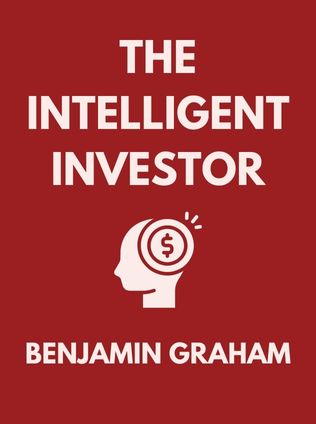
The Intelligent Investor
By Benjamin Graham
Published 01/1949
About the Author
Benjamin Graham, often referred to as the "father of value investing," was a British-born American economist, professor, and investor. Graham's philosophy of "value investing"—protecting oneself from substantial error and teaching oneself to develop long-term strategies—has made him one of the most influential figures in the investment world. His books, particularly "The Intelligent Investor" and "Security Analysis," have inspired countless investors, including Warren Buffett, who credits Graham as a foundational influence in his investment approach. Graham's work emphasizes the importance of a disciplined approach to investing, prioritizing the intrinsic value of stocks and focusing on long-term gains over short-term speculation.
Main Idea
"The Intelligent Investor" is a seminal text that provides a comprehensive guide to investing with a focus on value investing principles. Graham emphasizes that successful investing does not require extraordinary intelligence or insight but rather a rational decision-making framework and emotional discipline. The book outlines key principles for intelligent investing, distinguishing between investing and speculating, and offers practical advice for both defensive and aggressive investors. Central concepts include understanding the fundamental value of stocks, maintaining a margin of safety, and navigating market fluctuations with a level-headed approach.
Table of Contents
- Introduction
- Investment vs. Speculation
- Defensive Investor Strategies
- Aggressive Investor Strategies
- Market Fluctuations and Mr. Market
- Margin of Safety
- Conclusion
Introduction
Benjamin Graham's "The Intelligent Investor" opens with a fundamental premise: investing well over the long term requires a rational framework for making decisions and the emotional discipline to prevent external factors from overriding this framework. Graham asserts that with these two elements, anyone can achieve investment success, often outperforming more financially-educated individuals who lack patience and discipline.
Investment vs. Speculation
Graham begins by differentiating between investors and speculators. Investors are those who, through extensive analysis, aim for an adequate return and safety of principal. Speculators, on the other hand, trade based on market movements and trends, often driven by emotions and popular opinion rather than fundamental value.
“An investment operation is one which, upon thorough analysis, promises safety of principal and a satisfactory return. Operations not meeting these requirements are speculative.” – Benjamin Graham
Key Differences
- Investors: Focus on the fundamental value of stocks, buy when prices are low, and hold long-term.
- Speculators: Trade based on price movements, buy high and sell higher, and often ignore underlying value.
Defensive Investor Strategies
For the defensive investor, Graham recommends a balanced approach, typically splitting investments between stocks and bonds. The default allocation is 50-50, allowing participation in stock market gains while maintaining the relative safety of bonds. Depending on market conditions, this allocation can shift to 75-25 in favor of either stocks or bonds, but never more extreme.
Sign up for FREE and get access to 1,400+ books summaries.
You May Also Like
The Subtle Art of Not Giving a F*ck
A Counterintuitive Approach to Living a Good Life
By Mark MansonRich Dad Poor Dad
What the Rich Teach Their Kids About Money - That the Poor and Middle Class Do Not!
By Robert T. KiyosakiHow To Win Friends and Influence People
The All-Time Classic Manual Of People Skills
By Dale CarnegieFreakonomics
A Rogue Economist Explores the Hidden Side of Everything
By Steven D. Levitt and Stephen J. Dubner



















